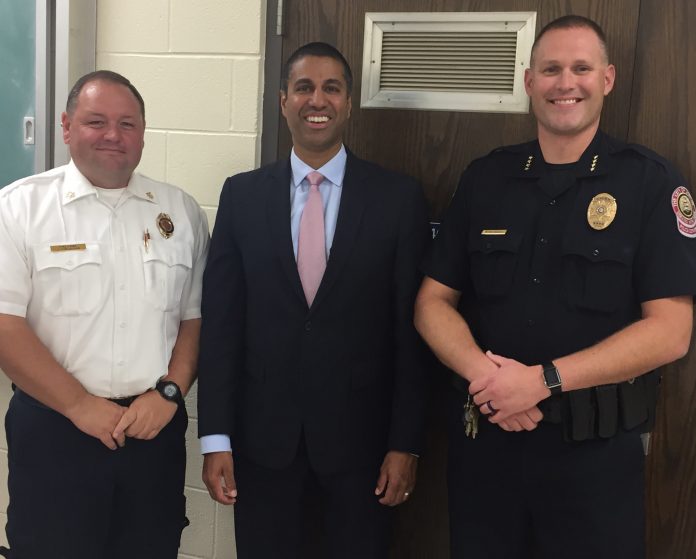
The Chairman of the Federal Communications Commission, Ajit Pai, unveiled this Tuesday his plans to repeal net neutrality rules approved during the Obama administration. These regulatory changes would allow telecom companies and internet service providers to prioritize internet traffic to their liking.
The move has been coming since April when Pai explicitly announced his intentions to overturn the “unnecessary” legislation that keeps major companies in check. President Donald Trump appointed Pai, a long-time Republican Commissioner, as Chairman following his swearing last January.
Tech giants and consumers alike have been rallying against the repeal of net neutrality rules, since they would end up doing more harm than good from their standpoint. Advocacy groups have said they will challenge the proposals in court to avoid the impending approval by a Republican majority at the Commission.
https://www.youtube.com/watch?v=X7d5NE8cTKg
The end of net neutrality could be the beginning of priority services
Part of the activist campaign to raise awareness on net neutrality consists of people creating mockup images of what the internet would be like if there were no such rules. The thing is, that now those bracketed internet plans are closer to becoming a reality.
With these regulations gone, service providers are free to do what suits their business best. This includes segregating the internet, both in terms of access, speed, and costs. Your mobile carrier, for example, could purposefully impose limits on how much content you can stream from a certain platform like Netflix.
If this sounds illogical and wrong, wait until you hear the rest. ISPs could prioritize sites that they consider of interest, possibly after the companies that own them pay for that privilege, and outright block access to others unless you pay for a special plan that unlocks the content you once enjoyed after paying a monthly bill.
Calling what the FCC once to do to net neutrality "a free and open internet" Is like calling what EA does to video games "fun and inexpensive"
Don't fall for their lies.
Preserve net neutrality.
Write and call your reps.https://t.co/SWSxgEzibP
— Boogie2988 (@Boogie2988) November 21, 2017
More telecom monopolies could rise under Pai
This way, the internet could start to look a lot like cable TV packages, in that you could pay a fee for the standard service and then additional fees for access to social media sites, streaming platforms, and online gaming hubs, for example. The same goes for mobile carriers.
If that already doesn’t sound dystopian enough, the repeal of net neutrality rules could also clear the way for major companies to grow even bigger, and become monopolies on their own as the cap is lifted on how many broadcast stations TV networks can own, for instance.
When the argument against net neutrality cites micromanaging and decreased competitiveness in the industry but leads to potentially extreme content censorship and service monopolies that will only favor telecom giants, one can’t help but wonder who will benefit from the vote on December 14.
Netflix supports strong #NetNeutrality. We oppose the FCC's proposal to roll back these core protections.
— Netflix (@netflix) November 21, 2017
Source: Reuters










